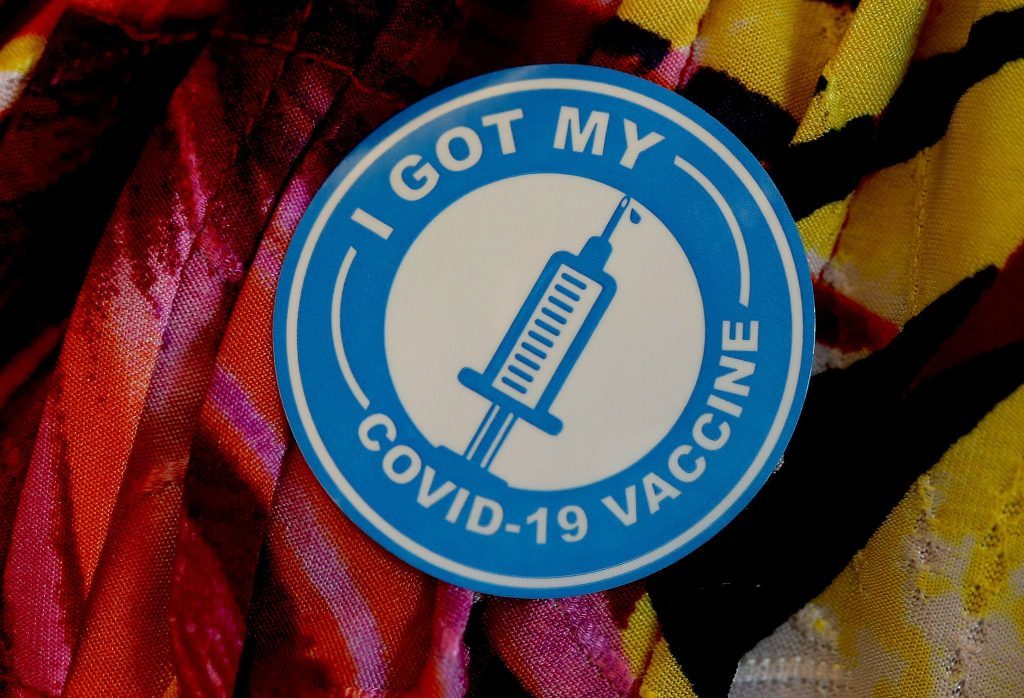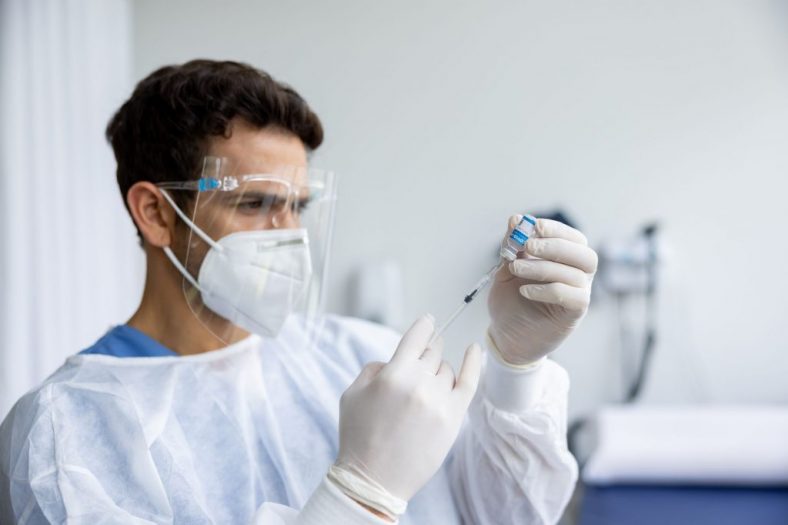What are the Covid Booster Side Effects? – COVID19
Covid Booster Side Effects – As the Centers for Disease Control and Prevention have started pushing its bivalent COVID vaccine to every eligible American throughout the nation, it has become very important for you to ensure your safety before and after getting the vaccination.
Most people were not skeptical about COVID vaccines when they were first launched, but the Johnson and Johnson vaccine showed some serious side effects, and it was limited by the Food and Drug Administration of the United States. Soon after that announcement, most people started talking about the safety of the COVID vaccine and its booster shots.
The debate on the effectiveness of the COVID vaccine might have ended in the United States, but the debate over the safety of people after getting vaccinations has once again started. That is why today we are also here to talk about COVID booster side effects. We will take a look at the independent studies and the press releases by the Centers for Disease control and prevention.
Table of Contents
General COVID booster side effects
Let’s start our analysis of COVID booster side effects which is the general list presented by the Centers for Disease Control and prevention on its official website.
From the very first day, the Centers for Disease Control and Prevention of the United States has been telling everyone that the COVID vaccine can cause some general side effects, which will go away on its own without any medication.
These general COVID booster side effects are divided into three different sections. The Centers for Disease Control and Prevention of the United States believe that the edge of the vaccine recipient can play a major role in the types of side effects.
Six months to three years
The first age group of general side effects of the COVID vaccine and its booster shots mentioned by the Centers for Disease Control and Prevention is for recipients from six months to three years.
- Pain on the leg or arm where the COVID shot was given.
- Constant crying
- Irritability
- Sleepiness
- Owner lymph nodes
- Loss of appetite
Four years to 17 years
The second age group for general side effects of the COVID vaccine is the age between four years to 17 years. As compared to the first cluster, the second cluster is going to be a little bit different. A four years old kid does not cry much after getting vaccinations.
- Tiredness
- Headache
- Chills
- Swollen lymph nodes
- Pain, swelling, and redness at the place of the shot
- Muscle and joint pain
18 years or older
The final age group of general side effects of the COVID vaccine is everyone above the age of 18. In this age group, the Centers for Disease Control and Prevention believe the immunity of a person plays a huge role. Some people might not experience any symptoms whatsoever other than little pain on the site of injection due to their strong immunity.
- Staying on the site of injection
- Redness
- Swelling
- Tiredness
- Chills
- Fever
- Nausea
- Muscle pain
The Centers for Disease Control and Prevention suggest anyone take any medication whatsoever without consulting with their health care provider.
Even if you are taking any medication regularly, you should not ignore the suggestion and consult your medication with your health care provider. You can also consult your medication with your health care provider before the vaccination.
If you believe the general side effects of the COVID vaccine are going out of your hand and they are getting very serious, then you should not ignore it and call 911 or your health care provider right away.
There is a little bit of probability that the general side effects of the COVID vaccine can become severe and require hospitalization.

Allergic reaction
COVID vaccination is not 100% allergy-free vaccination. The Centers for Disease Control and Prevention of the United States suggest every person who is allergic to any ingredient used in the vaccine or, in general, consult their health care provider before getting the vaccination.
Even if you are just allergic to nuts, health experts around the world may suggest you consult with your healthcare provider. In case you start experiencing any symptoms related to an allergic reaction, including rash, swelling, difficulty in breathing, chest pain, and readiness, you should consult with your healthcare provider or call 911.
Allergic reactions can cause life-threatening conditions, and they should not be ignored under any circumstances.
Should you get vaccinated with COVID booster shots?
Yes, most health experts in the country and all around the world will suggest that you get vaccinated with the COVID vaccine and all of its booster shots as early as possible.
Suppose you don’t want to believe the Centers for Disease Control and prevention of the United States, then don’t. But, you have to believe in the World Health Organization. Also, recommend every person on this earth get their self vaccinated as the COVID vaccine is known to provide better protection against the infection of COVID-19 as compared to immunity.
Even if you take a look at the data on general or common side effects of the COVID vaccine and compare it with the rear-end severe side effects, you will find that there is a huge difference.
The probability of anyone getting severe or rare side effects of the COVID vaccine is one in a million or more. Yes, most people are going to experience general side effects of the COVID vaccine, but it does not say anything about the safety of COVID vaccines.
The Centers for Disease Control and Prevention, along with the Food and Drug Administration of the United States, limited the use of the Johnson and Johnson single-shot COVID vaccine in the United States after finding around 100 cases of rare blood clotting disease.
If you take a look at the COVID vaccine data in the United States, you will find that more than 14 million Americans have been vaccinated with Johnson and Johnson vaccine and around 100 people have the rare disease.
Several different factors can influence COVID booster side effects or the side effects of the primary series. Those factors can highly influence your chances.
Factors that can influence COVID booster side effects
Before we wrap up this session, let’s take a quick look at the factors that can influence the COVID booster side effects after getting the vaccination.
Even though the Centers for Disease Control and Prevention have not released many details on the same subject, there are several independent studies.
Remember, these factors alone might not work as you are thinking right now. Usually, it is the combination of different factors that can influence the whole possibility of the COVID booster side effects.
Type of vaccine
The type of vaccine can play a huge role in a person getting severe or general side effects of COVID boosters. You might have remembered that the Food and Drug Administration of the United States limited the use of the Johnson and Johnson COVID vaccine after a few months of its approval.
The Centers for Disease Control and Prevention recorded some cases of severe blood clotting disease after getting vaccinated with Johnson and Johnson COVID vaccine. On the other hand, no other vaccine in the world has been limited by any major government around the world.
Age of the person
The age of the person receiving the COVID vaccine can also play a huge role. Yes, not every person in the same age group will have similar immunity but people who are older or younger than age 5 experience more side effects of getting COVID vaccination as compared to any healthy adult. Even in routine, we see that people who are of advanced age experience more diseases, as their ability to fight against the disease is very low.
Immunity
Lastly, the immunity of the person receiving the COVID vaccine can also play a huge role in someone getting severe or general side effects. You might have seen some people who did not get any side effects of the COVID vaccine. It all happened because of their strong immunity.
People who are already struggling with any chronic disease can also experience high severity of general side effects. For example, fever after getting a vaccination might not go well on its own within one or two days.
In case you are worried about your health after getting a vaccination, then you should consult with your health care provider. There is no other way to ensure your safety other than talking to your health care provider regarding the side effects.
How to get better from COVID booster side effects?
The Centers for Disease Control and Prevention suggest everyone rest as much as possible after getting vaccinations. Apart from that, you can also drink plenty of fluids to get better from COVID booster side effects. You can also use a cold, wet cloth if you have a fever.

